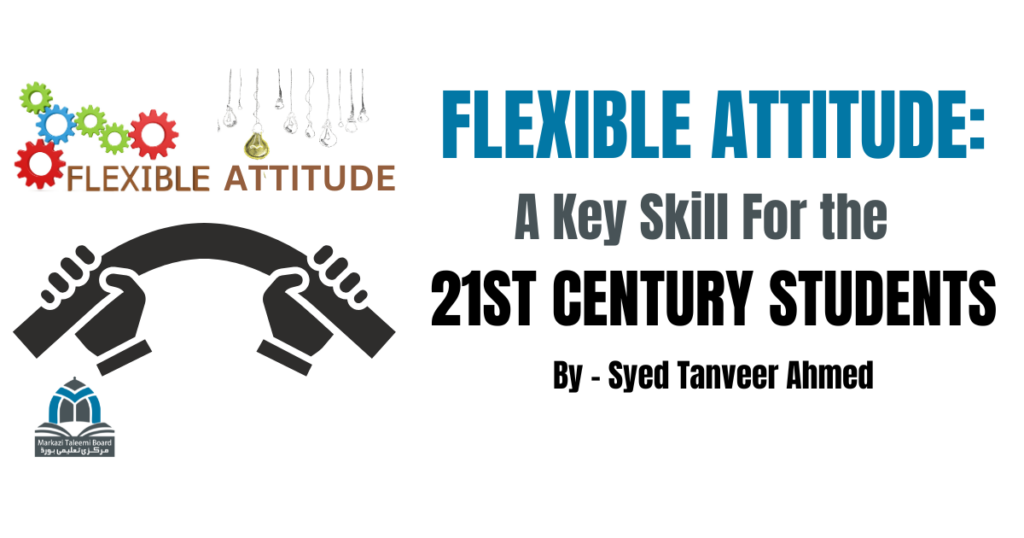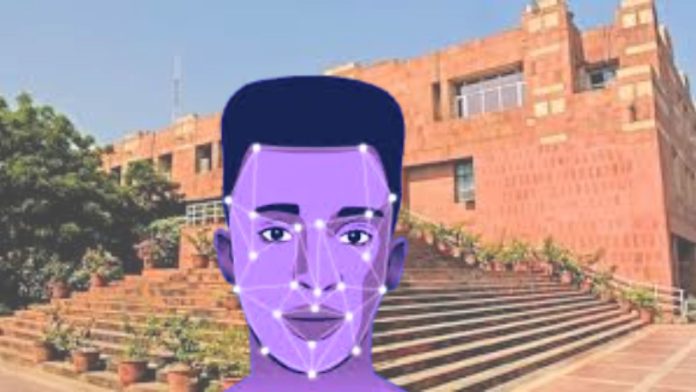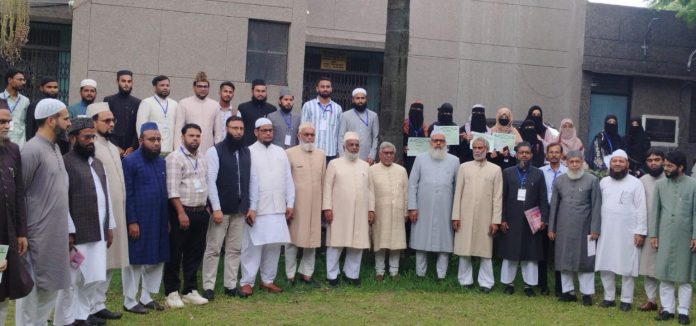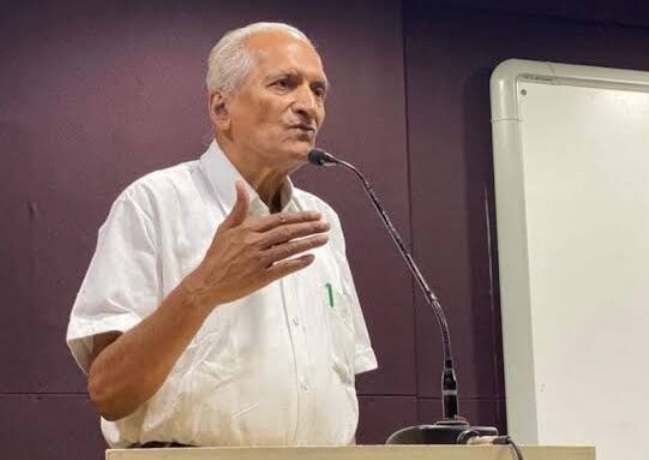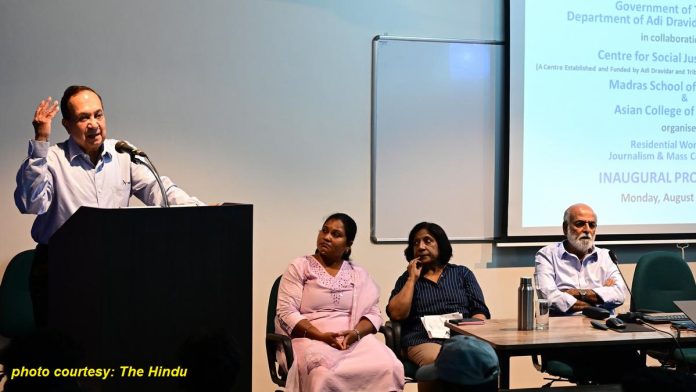– Syed Tanveer Ahmed
The world has become globalised today. This globalisation has transformed people into “global citizens.” This is not just a term used in academic discussions; it highlights the need to develop qualities in the new generation that are necessary to become global citizens. One of the skills required to become a successful global citizen is flexibility.
Flexible attitude not only helps a person adapt to various situations but also opens doors to success in different areas of life. In today’s world, everyone has multiple responsibilities to handle, such as caring for their family, managing a limited income amidst rising costs, and dealing with various life challenges. For this reason, a flexible attitude has become a fundamental necessity.
Students of the 21st century are part of a global world, where people of different races, cultures, religions, and beliefs coexist. Their lifestyles vary, their concepts of pleasure are different, their eating habits are diverse, their standards of aesthetics differ, and their ways of communicating and interpersonal skills are different. This cultural diversity exists not only between countries but also within each country. It is often said that every 100 kilometres in India, language and culture change.
While there are differences in human behaviour, demands of the times require the new generation to step out of their comfort zones and engage with diverse situations. These situations are not uniform but vary widely.
The global world of the 21st century has taken another step forward, transforming into a Digital World, where social media influences human thoughts, preferences, and other aspects of life. People today are breaking free from the confines of their native civilizations and cultures and freely expressing their thoughts in an open environment. These thoughts are also influencing their involvement in various fields.
In such circumstances, the new generation needs to adopt a flexible attitude. The question of “How flexible should one be?” and “Within what boundaries should flexibility exist?” emphasises the need for serious consideration regarding education and training on this topic.
A flexible attitude is necessary because today, an engineer from Japan may go to a remote country in Africa and adjust to its culture, lifestyle, food, and language. This is essential for leading a successful life globally.
This attitude is not just a desirable quality between two continents or two countries; it is also necessary for individuals to improve their lives, maintain a harmonious married life, and keep their families and the society around them prosperous.
What is Flexible Attitude?
Flexible attitude is the trait that allows an individual to adjust their thinking, opinions, decisions, actions, or reactions according to circumstances. This attitude is adopted by considering arguments, potential outcomes, and the emotions and situations of others.
If someone presents an argument and, after being persuaded, changes their thoughts or opinions, this is considered flexible attitude.
When a person alters their approach or strategy after considering the possible consequences of an action or response, it is also flexible attitude.
Flexible attitude is also evident when an individual is willing to work with others in a cooperative manner, even in the face of differences.
When a person understands the weaknesses of another and adjusts their behaviour accordingly, this is also an example of a flexible attitude.
In a flexible attitude, the individual makes a final decision after consulting others rather than making an immediate judgment.
A person with flexible attitude values others’ opinions over their own ego. Such individuals understand others’ emotions and constraints and adjust their behaviour accordingly.
Flexible attitude is also extremely important in religious matters. Some people focus only on words and phrases without pondering over the spirit behind them. On the other hand, some people approach these matters with more flexibility.
Flexible Attitude and its Importance in Social Life
Flexible attitude is essential for strengthening relationships and promoting unity, whether at the individual or group level. Without flexibility, relationships weaken, resulting in a disruption of unity, and team spirit diminishes. The dynamics of the group are affected, which in the corporate world can impact production, actions, sales, and profits.
Consequences of Not Adopting Flexible Attitude
- If an individual, group, or community adopts a rigid attitude, there can be several consequences:
- A rigid attitude negatively impacts interpersonal relationships, leading to increased disagreements and reducing progress towards a collective goal.
- A rigid attitude causes an individual to lose balance in their decisions, which could result in personal and collective loss.
- A rigid attitude can make marital life unhappy by hindering mutual understanding and cooperation.
- Individuals or communities with rigid attitudes often struggle to succeed on the international stage due to the diverse opinions, cultures, languages, and preferences encountered globally.
- A rigid attitude limits consideration of alternatives, weakening an individual’s problem-solving abilities.
Flexibility vs. Rigidity: An Analysis
Impact of Rigid Attitudes on Youth and Students
Rigid attitudes in youth and students lead them toward extremism, which generates negative actions and behaviours in society. This, in turn, affects social harmony and creates divisions in societal relationships.
How to Cultivate Flexible Attitude in Students
Educational curriculums worldwide are now incorporating flexibility in attitudes as an essential aspect of learning from an early age. It has become a social necessity. To develop this attitude, many schools are adopting the “Montessori Method” at the pre-primary level. This method teaches students different ways of performing tasks.
Montessori Method and Training for Flexibility
- Students are encouraged to think and reflect before starting a task.
- Discipline is taught to students.
- Students are taught to care for others and share, helping to build habits of collaboration and cooperation. These social traits foster flexibility in children.
Group Activities and Primary School Training
When children enter primary school, learning in groups and collaborative learning methods are introduced to nurture this trait:
- Students form a group and work on a project or activity together.
- As they grow older, students are given social projects that promote flexibility and social awareness.
In today’s educational environment, two terms have become widely recognised:
Emotional Quotient (EQ)
o It refers to the ability to understand others’ emotions and adjust one’s behaviour accordingly.
o It is essential not only to understand others’ emotions but also to regulate one’s own emotions based on that understanding.
o Sometimes, it requires controlling one’s own emotions to correct others’ feelings. This conscious process is known as Emotional Quotient (EQ).
By fostering EQ and flexibility in students, the educational system can prepare them for a diverse and rapidly changing world, where adaptability is key to success.
Social Quotient (SQ) and Its Importance
The second term is Social Quotient (SQ):
- It refers to an individual’s ability to understand social needs, habits, reactions, and temperaments of people, and adjust their behaviour accordingly.
- For a social worker, adopting a flexible attitude in different cultural or geographical environments is an example of Social Quotient.
For example, if a social worker from North India is offered Idli and Vada for breakfast in South India and accepts it happily, this is a sign of their social intelligence.
Empathy Education
Empathy is the ability to understand the emotions, joys, sorrows, thoughts, and habits of others. This skill is being fostered in schools as well.
Empathy is not just about understanding sadness and difficulties but also includes understanding joy.
It involves not only the awareness of others’ emotions but also the necessity of adjusting one’s actions according to them.
For instance, after recognising someone’s sorrow, offering help is a prime example of empathy.
Religion and Flexible Attitude
The training of a flexible attitude should incorporate religious values:
- By educating students based on Islamic beliefs and the teachings of the Prophet ﷺ, a sense of social harmony and its blessings can be instilled.
- To develop flexibility within Muslim society, Friday sermons and the role of religious groups should also be emphasised.
Psychologists and Behavioural Science
Muslim psychologists who focus on behavioural change should be consulted:
- A branch of modern psychology, Neuro-Linguistic Programming (NLP), is becoming popular for altering behaviours.
- Useful concepts from Islamic tradition, such as meditation and self-improvement, can also be employed in this process.
Flexible attitude is not only a fundamental trait for academic success but also for general social success. To instil this quality in children, it is essential to utilise educational curriculums, group activities, religious training, and psychological techniques. This trait helps children become better and more harmonious members of society.
Experts believe that students who pursue education in fields like science and technology should also study social sciences, particularly basic psychology and sociology, to develop a flexible attitude. National Educational Policy 2020 has also endorsed this perspective. Several European countries have also included such subjects in their graduate curricula.
Educational experts have observed that a dialectical approach, which involves discussions, debates, or contradictions, can be effective in developing flexible and positive attitudes in students. This approach allows for deeper exploration of a topic or idea and ultimately leads to solutions.
Islam and Flexible Attitude
Islam refers to its followers as Ummate Wasat (The Balanced Ummah), meaning a moderate and balanced community.
Maulana Syed Abul A’la Maududi elaborated on the concept of Ummate Wasat in his Tafseer (exegesis) of Surah Al-Baqarah (Verse 143), explaining that it refers to a community that maintains moderation and balance. This community is not inclined towards extremism or neglect, but rather avoids all forms of excessiveness and exaggeration. They adopt a middle ground in their ethics, actions, and ideologies, which is the preferred path according to Allah.
Moderation and Balance
According to Maulana Maududi, the concept of Ummate Wasat is one of the fundamental principles of Islam. Islam guides its followers on a path that addresses both their spiritual and material needs. It does not advocate for the complete renunciation of worldly desires, nor does it allow for their excessive indulgence.
Importance of Moderation
The final messenger of Allah, Prophet Muhammad ﷺ, said: “Adopt moderation, adopt moderation, adopt moderation, for it is one of the paths to Paradise.”
Islam teaches the adoption of flexible attitude in the matters of life. However, adopting flexibility does not mean abandoning one’s core beliefs, principles, or culture.
Limits of Flexible Attitude
Discussing flexible behavior might lead to misunderstandings, such as:
- Abandoning one’s own views completely.
- Unthinkingly accepting the opposing views.
- Sacrificing one’s principles under external pressure.
- Changing one’s stance based on fear or greed.
True Meaning of Flexible Attitude
A truly flexible attitude involves altering one’s opinion or actions, considering reason, facts, and long-term outcomes that lead towards truth and correctness. However, this change should not be due to fear, greed, or external pressure.
Islamic flexibility means dealing with others while maintaining one’s identity, culture, and core beliefs.
- Present your beliefs and ideas with clear reasoning.
- Listen carefully to others’ arguments.
- Do not impose your opinion on others through pressure or force, nor accept others’ opinions blindly.
- Shape your behaviour to create an environment of mutual respect and cooperation.
Where There Is No Flexibility, There Is Rigidity
When an individual or group lacks flexibility, rigidity arises. This rigidity, when transferred to a group of three people, takes the form of fascism.
Today, there is a growing trend among the youth in our country to believe that their beliefs, traditions, language, and ideologies are superior to others. They look down upon those who differ from them in any aspect.
Promotion of Political Power and Harsh Attitudes
When rigid attitudes receive political backing and support, extremism and fascism are promoted. This is what is happening in our country today, where the trend of intolerance and harsh attitudes is growing among the youth and students.
Examples of Flexibility in Islamic History
- During the Treaty of Hudaybiyyah, the people of Makkah objected to the inclusion of the phrase “Messenger of Allah” in the agreement. The Prophet Muhammad ﷺ did not insist on this and agreed to have his name written as “Muhammad ibn Abdullah” instead. This approach was adopted considering the sensitivity of the situation in order to secure the agreement and pave the way for peace.
- After the Battle of Badr, some of the captured prisoners were released on the condition that they would teach Muslims how to read and write. This was a remarkable example of flexibility and humanity in Islamic teachings.
Similarly, Islamic law (Shariah) also includes many aspects of flexibility, providing ease and convenience in various situations, such as:
When water is unavailable, the option of performing Tayammum (dry ablution with dust) is given.
During travel, Muslims are allowed to shorten their prayers (from four rakah to two).
If someone is ill or travelling, they are allowed to skip fasting and make up for it later.
If marital harmony is not possible between a husband and wife, Shariah permits divorce or Khula (separation by mutual agreement), so both parties can live peacefully.
[The writer is Secretary, Markazi Taleemi Board]


